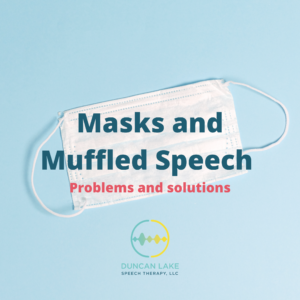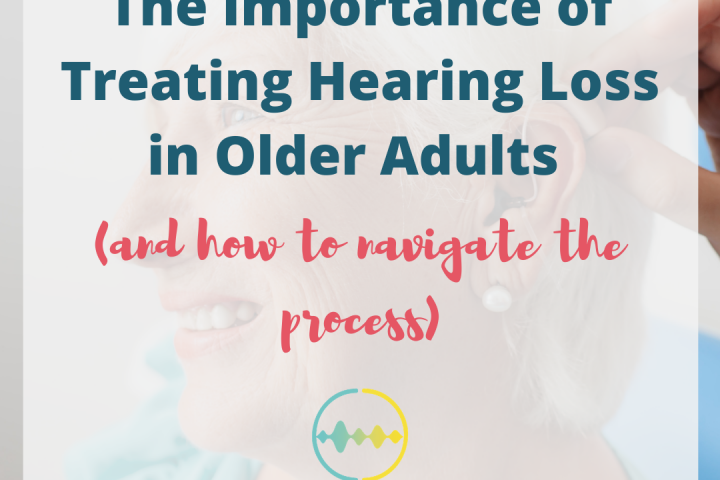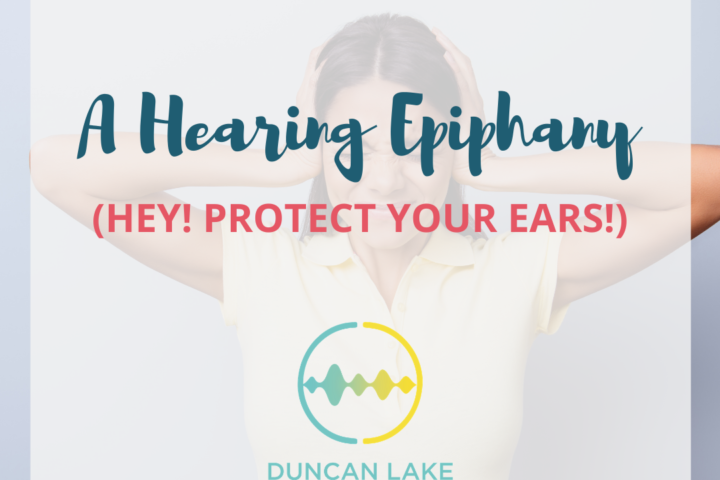I’d just like to preface this blog post by saying that masks are not up for debate on this platform. My job is to bring you information relevant to speech, language, and hearing, and that’s what I’m going to do.
My husband works at a retail pharmacy here in the greater Grand Rapids area. He came home early on in the pandemic and noted that his voice was hoarse and he couldn’t quite figure out why. After a few more shifts, he realized that he had to project his voice quite a bit more to accommodate for the fact that he was wearing a mask. The customers weren’t able to hear him otherwise. For those of you who wear masks and are frequently around people who wear them, have you noticed that you’ve been going, “What? Huh?” a little more than usual? Well, you’re not alone.
Researchers recently conducted a study to determine whether masks made speech harder to understand. As you can imagine, they did. The researchers tested speech while wearing a simple mask, an N95 mask 1, and an N95 mask 2. Each mask made speech 3-4 dB (simple mask) to 12 dB (N95 mask 2) quieter in the 2000-5000 Hz frequencies. What does that mean? Listeners perceived speech “quieter” at frequencies where a third of speech sounds are made. Take a look at this fun “speech banana.” Humans produce 9 sounds between 2000-5000 Hz! And they’re frequently used sounds!
![]()
Why is this problematic?
Great question. For people in general out and about, if masks make frequently used sounds quieter, it’s going to be really hard to understand what is being said. Think about it – we’re not able to hear a third of our speech sounds like we normally would! Couple that with the loss of visual cues with the lips, and you’ve got a situation ripe for an auditory disaster. Now imagine someone with hearing loss trying to understand masked speech. Not only do they already have a difficult time hearing, but now they have extra obstacles (quieter sounds, no visual cues). NOW ADD ON ENVIRONMENTAL SOUNDS! Grocery stores are not quiet, people.
If grocery stores aren’t quiet, then think about how the noise level of a hospital room. We know that older folks tend to have more hearing loss. We also know that older folks have been disproportionately affected by COVID-19, which means that older folks are hospitalized with COVID-19 at a higher frequency than their younger peers. How can someone with hearing loss follow medical directions properly if their caretakers are masked and there is a ton of background noise?
See why this is problematic?
So, what do we do?
I can’t speak to what hospitals are or are not doing to accommodate their patients. However, there are some universal strategies that we can all use to make sure our conversation partners hear and understand us while we’re wearing a mask.
- Speak slowly and clearly. Pause between sentences to give people a chance to process what you’re saying.
- Reduce the noise around you. If you really have to have a conversation with someone while wearing a mask, choose a quiet place. At an outdoor restaurant, pick a quiet corner. Or, if you’re at a grocery store with your spouse and need to have a conversation, do so in a less-crowded area. In a hospital room, try to eliminate as much background noise as possible.
- Repeat or rephrase what you’ve said if you know your conversation partner misunderstood you. Likewise, conversation partners, be honest about what you’ve heard or not heard.
- Talk to your conversation partner directly. Don’t have a conversation while looking away or shouting behind you. Use face-to-face (mask-to-mask?) communication.
- If you have a hearing aid, please wear it now during COVID-19 times, but also all the time.
For those who work with the public, be sure not to shout and scream over your mask. That’s setting yourself up for some vocal nodules. Use the above strategies. If you talk a lot during the day anyway, make sure you’re practicing good vocal hygiene.
Use these strategies and keep on masking up!
Source: Goldin A, Weinstein BE, Shiman N. How do medical masks degrade speech perception? Hearing Review. 2020;27(5):8-9.




Great blog post Tami, I am currently writing a blog post on vocal hygiene during the pandemic and your blog post came up while I was researching helpful information.